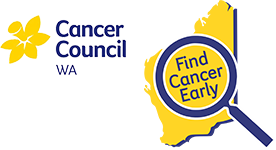Checks symptoms early for best cancer outcome
If it is something, it’s much better to find it early and get on with the recommended treatment.
This article was published by Farm Weekly 25 July 2019.
WHEN cancer is found in the early stages, it can often be easily removed or treated.
In cases where the cancer has spread, treatment becomes more difficult and the person’s chances of survival may not be as good.
According to the Cancer Council WA, regional Australians are 20 to 30 per cent more likely to die within five years of a cancer diagnosis than people living in metropolitan areas.
The organisation said a regional postcode shouldn’t define a person’s survival outcome and that’s why it’s important for regional people to know the early symptoms to look out for and what to do if they find them.
So what do you need to look out for?
The Cancer Council WA recommends the following if you experience any of the below symptoms:
❐ If you find blood in your poo, blood in your pee or you’ve coughed up blood, even just on one occasion it needs to be discussed with a doctor, clinic nurse or health worker straight away.
❐ If for more than three weeks you have noticed any changes to your bowel habits, including runny poo, pooing more often or constipation, make an appointment at your local medical clinic.
❐ Similarly, if for more than four weeks you’ve noticed problems peeing, unexplained weight loss, an unusual pain, lump or swelling anywhere in your body, or you are short of breath or have a persistent cough,
see a doctor, clinic nurse or health worker.
The organisation says, chances are it’s nothing to worry about, but if it is something, it’s much better to find it early and get on with the recommended treatment.
Bowel cancer screening kits and mammograms are designed for people who aren’t experiencing symptoms and the organisation warns waiting to participate in a cancer screening program could delay your
diagnosis and risk a worse outcome.
The Cancer Council WA has provided the following tips for skin cancer prevention and detection:
❐ Be familiar with your skin and know what’s normal for you.
❐ All adults, particularly those over the age of 40, should regularly check their skin and look for changes in spots on your skin, crusty, non-healing sores, new spots, freckles or any
moles that change in colour, thickness or shape over a period of weeks to months.
❐ Don’t rely solely on an annual skin check as skin cancers can grow quickly.
In 2018, former Albany commercial pilot and aerial musterer, Arnold Black, noticed some unusual spots on the top of his head, similar to pimples.
After two to three weeks Mr Black noticed one spot hadn’t gone away.
He knew he should make an appointment with his local GP and made it a priority.
When Mr Black visited the GP he was told it was skin cancer and was treated in the clinic room then and there.
Mr Black then needed 15 doses of radiation in Perth.
Fortunately he was able to stay at Milroy Lodge, Cancer Council WA’s home away from home for regional cancer patients, while he underwent his treatment, 400 kilometres from Albany.
“Get it looked at,” Mr Black said. “Just do it.”
The Cancer Council WA said there were no excuses and that people, especially those aged over 40 in regional WA, needed to have any symptoms checked out by a doctor, clinic nurse or Aboriginal health worker.
❐ More information: go to findcancerearly.com.au or call 13 11 20 to speak with a cancer nurse.
